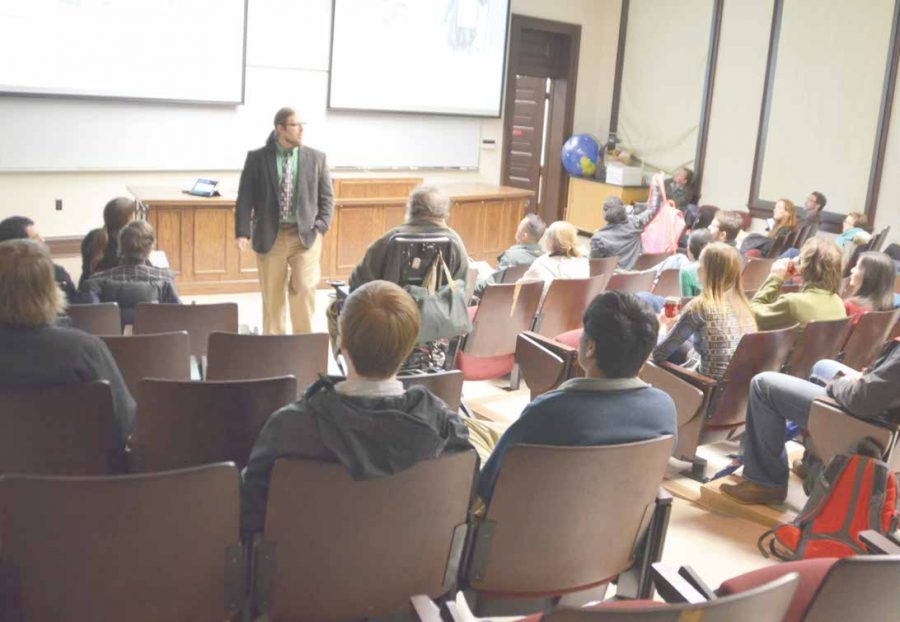Wednesday morning at 9 a.m., Erik Peterson was on the third floor of ten Hoor, writing the words “Social Darwinism” and “Eugenics” on the white board. He turned to the class for discussion.
“What do these words mean to you?” he asked.
Peterson, a new history professor at The University of Alabama, was teaching his class on Race and Science. In one 50-minute period he brought Andrew Carnegie, birth control, Teddy Roosevelt, Manifest Destiny and Aryans together to discuss the history they all have in common. Peterson’s students said his classes are formatted to focus on learning, but he always challenges them in conversations.
(See also “Smith Hall to host science, evolution celebration event“)
“As soon as he see he’s stepping on toes he says, ‘Well, let’s keep talking about that,’” said Jodi Wilson, a senior majoring in history and political science and a student in Peterson’s class.
Peterson holds a doctorate from the University of Notre Dame in the history and philosophy of science. His background is in the sciences. He has worked in the fields of biology, archaeology and biological anthropology.
“Science is a really powerful way of organizing the world,” Peterson said. “It’s really, really important. And yet, it also makes all kinds of assumptions about what we should think about ourselves and about the rest of the world. Rather than just saying, ‘Okay, we know this so we know it.’ I feel like a more important thing is for, at least some people, to keep asking, ‘Yeah, but why do we think that we know it? And are we really sure that we know it?’”
Peterson said his love of questions contributed to his interest in the history of science. He describes himself as the kid who was always put in the corner for asking too many questions. But, he said, the great scientists – Newton, Galileo and Copernicus – were first and foremost question-askers.
(See also “Today’s discourse needs more civility, respect, less vitriol“)
Peterson came to The University of Alabama in the fall of 2013, moving to Tuscaloosa from Columbus, Ohio. The University is the sixth university where he has taught. Peterson said he enjoys living in Tuscaloosa; it’s the smallest town he has ever lived in. He said he appreciates the easy commute to and from work, as well as Southern kindness. In only one semester at Alabama, Peterson has already impressed many students in his classes, who said they could tell he cares about what he is teaching.
“I have learned more in his two classes than I have in any others,” Trever Chidester, a sophomore majoring in anthropology and biology, said.
Peterson is the only professor at The University of Alabama who specializes in the history of science. He teaches various courses on the subject, including The History of Medicine, Race and Science, The History of Science, The History of Games and Darwin.
“I feel like one of my jobs, just here, is to press upon students that you only get this period of time to think about difficult problems that humans have been thinking about for all of humanity,” Peterson said. “Once you’re [out of college] there is no time for thinking about those things anymore. So while you’re in college ask hard question and think about hard things.”
(See also “What is suitable for a science class?“)









